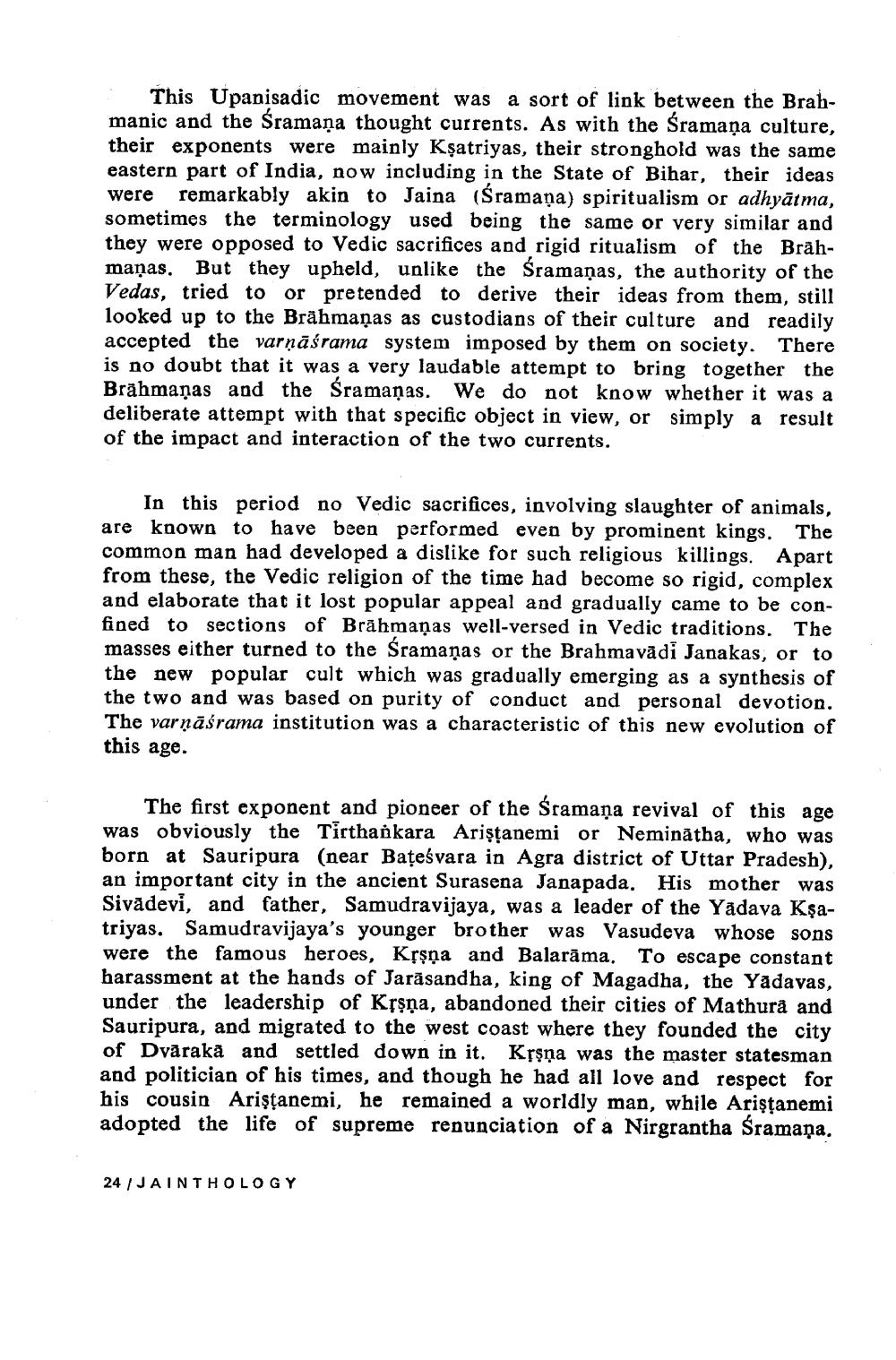________________
This Upanisadic movement was a sort of link between the Brahmanic and the Sramaņa thought currents. As with the Sramaņa culture, their exponents were mainly Kşatriyas, their stronghold was the same eastern part of India, now including in the State of Bihar, their ideas were remarkably akin to Jaina (Sramaņa) spiritualism or adhyātma, sometimes the terminology used being the same or very similar and they were opposed to Vedic sacrifices and rigid ritualism of the Brahmaņas. But they upheld, unlike the śramaņas, the authority of the Vedas, tried to or pretended to derive their ideas from them, still looked up to the Brāhmaṇas as custodians of their culture and readily accepted the varnāśrama system imposed by them on society. There is no doubt that it was a very laudable attempt to bring together the Brāhmaṇas and the Sramaņas. We do not know whether it was a deliberate attempt with that specific object in view, or simply a result of the impact and interaction of the two currents.
In this period no Vedic sacrifices, involving slaughter of animals, are known to have been performed even by prominent kings. The common man had developed a dislike for such religious killings. Apart from these, the Vedic religion of the time had become so rigid, complex and elaborate that it lost popular appeal and gradually came to be confined to sections of Brāhmaṇas well-versed in Vedic traditions. The masses either turned to the Sramaņas or the Brahmavadi Janakas, or to the new popular cult which was gradually emerging as a synthesis of the two and was based on purity of conduct and personal devotion. The varņāśrama institution was a characteristic of this new evolution of this age.
The first exponent and pioneer of the Sramaņa revival of this age was obviously the Tirthankara Ariştanemi or Neminātha, who was born at Sauripura (near Bateśvara in Agra district of Uttar Pradesh), an important city in the ancient Surasena Janapada. His mother was Sivadevi, and father, Samudravijaya, was a leader of the Yadava Kşatriyas. Samudravijaya's younger brother was Vasudeva whose sons were the famous heroes, Krşņa and Balarāma. To escape constant harassment at the hands of Jarāsandha, king of Magadha, the Yadavas, under the leadership of Krsna, abandoned their cities of Mathura and Sauripura, and migrated to the west coast where they founded the city of Dvāraka and settled down in it. Krsna was the master statesman and politician of his times, and though he had all love and respect for his cousin Ariştanemi, he remained a worldly man, while Ariştanemi adopted the life of supreme renunciation of a Nirgrantha Sramana.
24 JAINTHOLOGY




